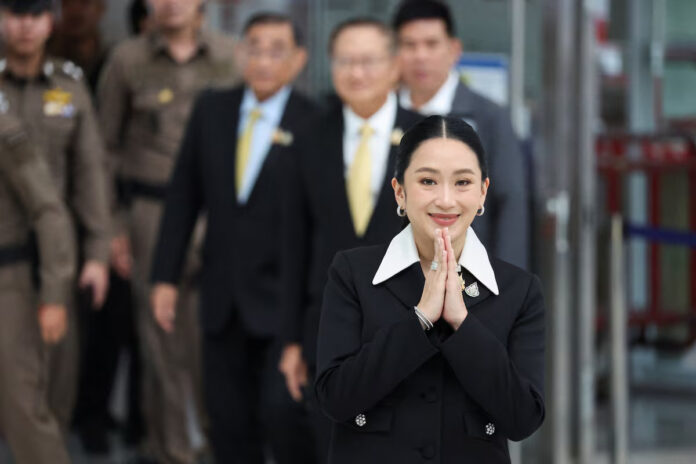
Thailand’s powerful Shinawatra political dynasty is bracing for a turbulent fortnight as courts prepare to deliver a series of verdicts that could unseat Prime Minister Paetongtarn Shinawatra and potentially send her father, former premier Thaksin Shinawatra, back to prison.
The political fate of the family, which has dominated Thai politics for more than two decades, now hinges on three high-stakes rulings. On Friday, a court will decide whether Thaksin, 76, insulted the monarchy in a 2015 media interview, a charge that carries up to 15 years in jail per offence.
Another ruling, expected 18 days later, will determine whether his 2023 detention in a VIP hospital wing instead of prison meant his sentence for abuse of power and conflicts of interest was not fully served.
Meanwhile, Paetongtarn, 39, is suspended from duty as she awaits an August 29 Constitutional Court decision on whether she violated ethics during a leaked phone call with former Cambodian leader Hun Sen while border tensions were rising.
Unfavourable rulings could strip the Shinawatras of political leverage, weaken their Pheu Thai party, and trigger an early election at a time when the ruling coalition is already fragile and sinking in opinion polls. Analysts warn that the party, once an electoral powerhouse, may not be strong enough to reclaim the popular vote.
“A new election will definitely take place by mid-2026 or maybe sooner,” said Prinya Thaewanarumitkul, a law professor at Thammasat University. “The chances of Pheu Thai regaining the popular vote in the next election are very unlikely.”
Thailand’s politics have long been shaped by the Shinawatras’ populist appeal but also by repeated clashes with the conservative establishment. The family has survived two military coups and multiple court interventions that toppled three governments and five prime ministers.
Should Paetongtarn be removed, parliament would have to choose a new premier from a dwindling list of candidates nominated before the 2023 election. Options include Pheu Thai’s remaining nominee, former justice minister Chaikasem Nitisiri, though at 76 and little known to the public, he would struggle to consolidate a shaky coalition.
Other names floated include former interior minister Anutin Charnvirakul and ex-prime minister Prayuth Chan-ocha, now a royal adviser.
The verdicts also come as Thailand’s economy falters, with sluggish growth, rising household debt, and uncertainty over policy continuity weighing on investor confidence.
While a string of defeats in court could diminish Pheu Thai’s bargaining power, analysts suggest Thaksin remains an indispensable player for conservatives seeking to contain the progressive opposition.
“The conservative camp has chosen Thaksin,” said Olarn Thinbangtieo, a political science lecturer at Burapha University. “Chaikasem would be picked as a short-term prime minister and dissolve parliament when the timing is right.”
The outcomes of the looming rulings could not only decide the Shinawatras’ political survival but also set the course for Thailand’s economic and democratic future.
Written By Rodney Mbua


















